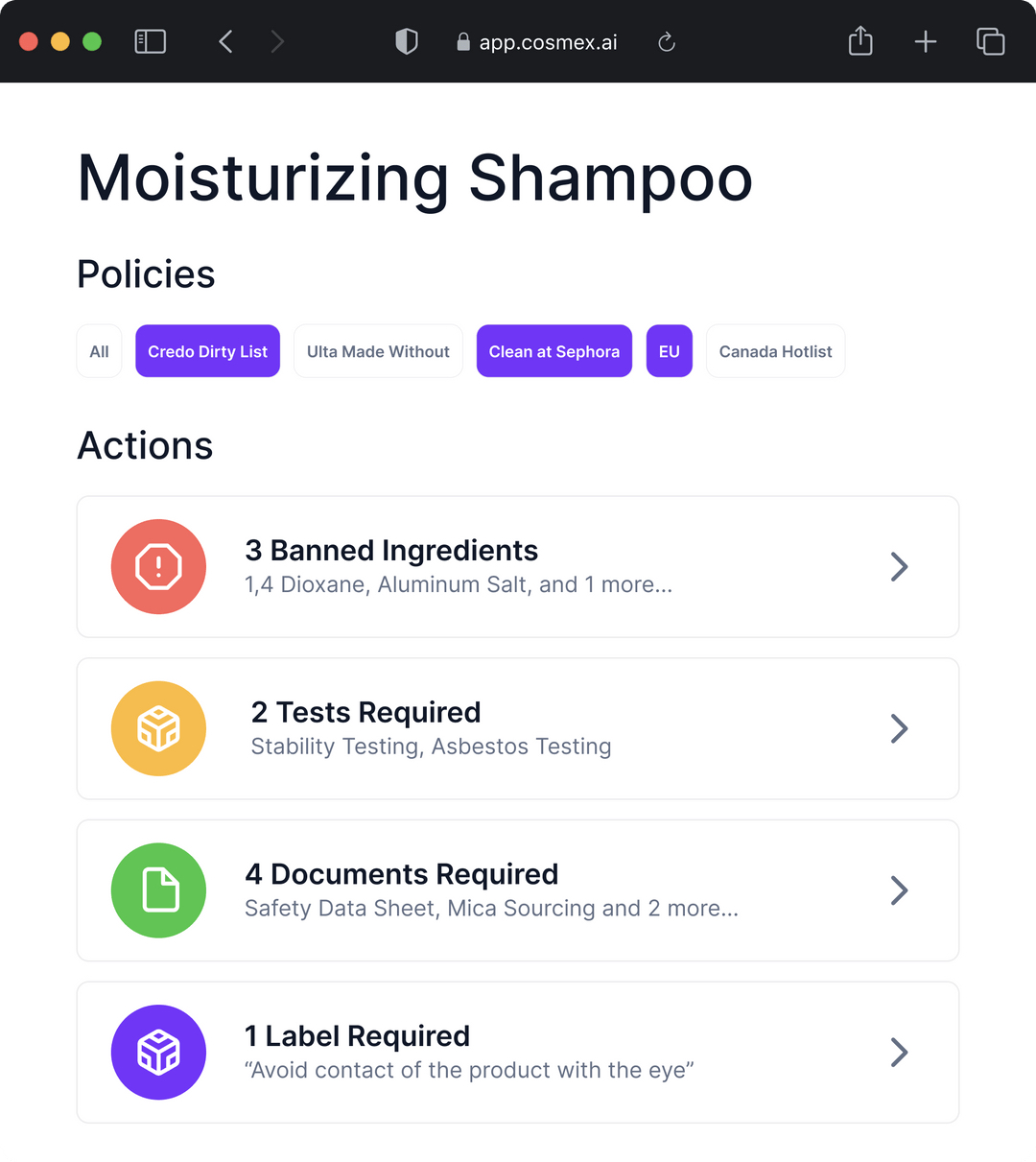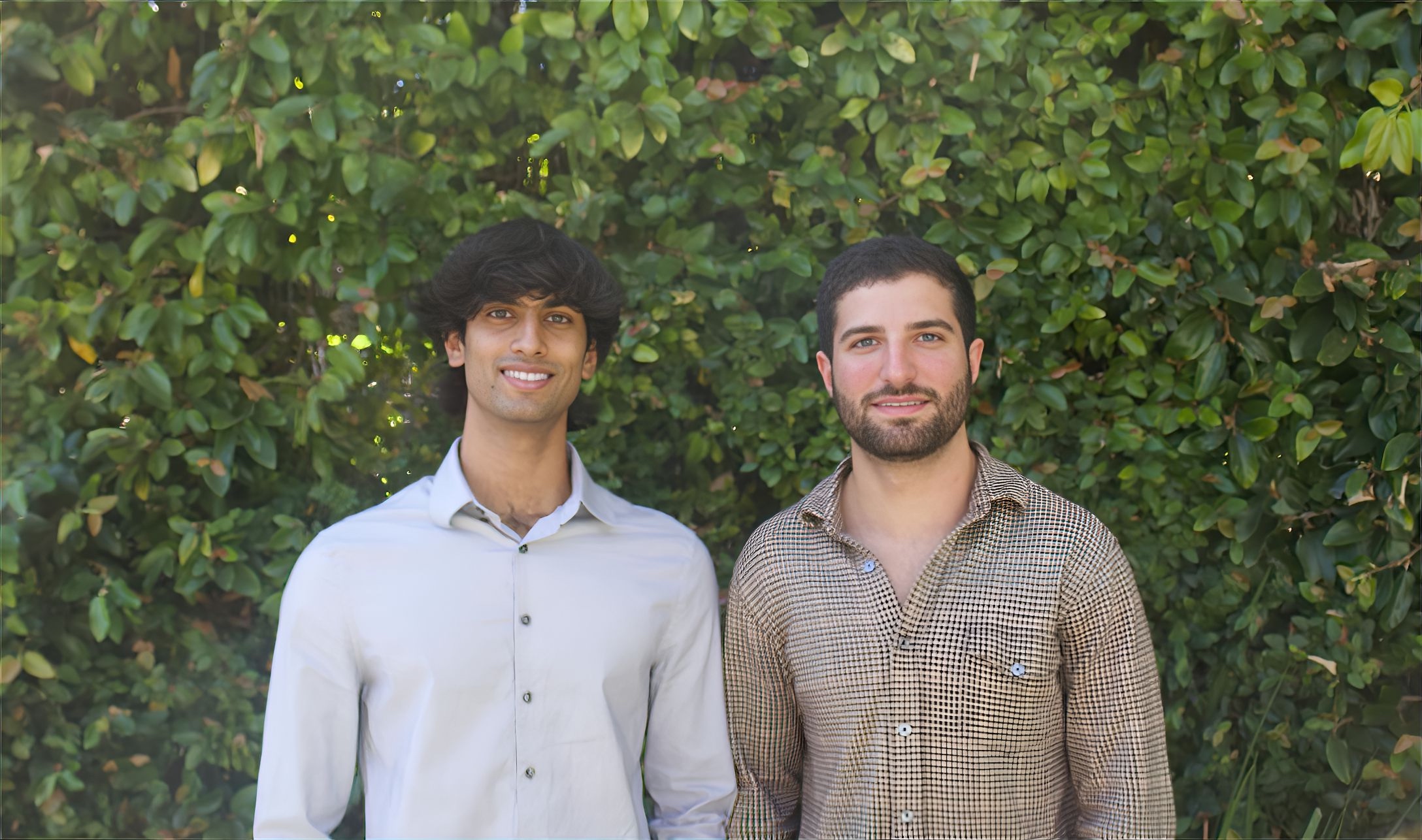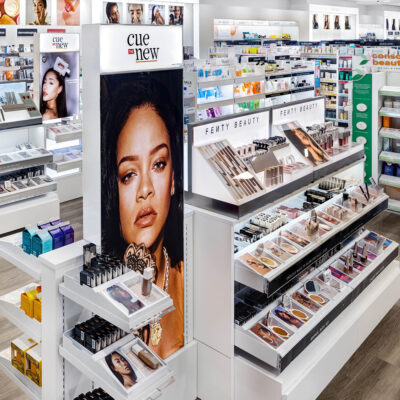
Starting With Regulatory And Retail Standard Compliance, Cosmex Strives To Be The “AI Operating System Of Formulation”
Cosmex is using the power of artificial intelligence to help beauty brands, manufacturers and cosmetic chemists sort through the thicket of government policies and retail standards to ensure their products are up to snuff with the latest requirements.
The new startup has amassed a database of 30,000-plus ingredients to assess the compliance of formulas to cosmetic ingredient frameworks developed by the likes of Sephora, Ulta Beauty, Whole Foods, Target, Health Canada and the European Union within seconds, recommend corrective actions for noncompliance, and supply a list of necessary documents, labels and tests. It promises to keep formulas under wraps with a combination of encryption, private networking and continuous backups.
Founded by Sahas Dendukuri, a former AI researcher at Apple and software engineer at Amazon, and Victor Maher, a former software engineer at Asana and Uber, Cosmex has arrived as beauty product businesses are implementing changes to adhere to the Modernization of Cosmetics Regulation Act of 2022 (MoCRA), which was signed into law by President Joe Biden last year and heightened the United States Food and Drug Administration’s oversight over adverse event reporting, recalls, facility registration and safety substantiation, among other regulatory realms. It’s erecting a library of ingredient safety documentation and beauty-related research to further inform product development.

“Our vision is to eventually become what I like to call the AI operating system of formulation,” says Dendukuri. “The idea is that this is going to be the one place where, as you start to come up with ingredients for your formula, you’ll get a lot of additional insights on safety data and research that’s being done around these ingredients and ways that you can combine ingredients to come up with formulas that are not just safe, but also beneficial or healthy for the end user so you can get out to the market quicker and make sure that their formulas that people want to use.”
While working with e-commerce brands, Dendukuri connected with a contract beauty manufacturer that complained to him about the mountain of information it must sift through to validate that its products are appropriate for the maze of retail and governmental guidelines. In August, he and Maher began to construct Cosmex’s platform with large language models that render huge datasets easier to summarize and comprehend to turn that maze into a straightforwardly navigable web tool.
Speaking of contract manufacturers, Dendukuri says, “They had a ton of these manual workflows around coming up with cosmetic products and then getting them to market, and I realized there was a lot of opportunity to bring AI into that space and we used it to speed it up…If we can make that process 5%, 10% better or faster, that’s a huge value-add to the industry.”
“This is the starting point for coming up with new formulas.”
The spread of access to large language models has made the creation of platforms tapping them relatively cheap to produce. Dendukuri estimates it cost about $2,000 to launch Cosmex, but stresses it was able to get off the ground with that amount because it handled design and engineering in-house. Dendukuri and Maher are focusing full time on Cosmex. The company currently has no external funding. The annual subscription fee it charges brands, contract manufacturers and cosmetic chemists to utilize its service is in flux, but ranges from $5,000 to $50,000 at the moment.
Cosmex isn’t entering a competitor-free field. The Good Face Project, Novi Connect, ClearForMe and Provenance are companies set up to do at least some of what Cosmex is offering. Dendukuri acknowledges that there’s overlap between Cosmex and its competitors, but believes it will differentiate itself by its speed and technical ability to surface and filter materials that will facilitate market-ready formulations.
“No one fully understands how MoCRA is going to look, but, with our background of building product quickly, we think that we can get something out there for users quickly,” he says. “We actually want to get pretty involved with the procurement process, too, and help these formulators and contract manufacturers with sourcing, and that’s actually where a lot of this document processing that I’ve been talking about will come into play. We give them a better understanding of their ingredients, where they’re coming from, whether they meet those safety standards, and that’ll help a lot with the traceability and making sure you understand your ingredients are meeting the standards that you care about.”

Dendukuri points out the biggest challenge for Cosmex is the sheer volume of data in the beauty industry. “Suppliers tend to prefer to be a little more obscure because of IP where they don’t want to reveal the percentages and compositions of their ingredients,” he explains. “So, we are trying to find a balance where you can help companies preserve their IP, but also get enough data to allow brands and manufacturers to understand what they’re making. It’s definitely going to take time to get a complete understanding of all this ingredient data, but I think it’s something that we can definitely do.”
Although it has much more room to grow within the beauty industry, Cosmex could extend beyond it to areas such as chemicals, pet care, food, electronics and housewares in the future, and it can provide data insights to its customers that give a broader view of what’s going on with formulations. For example, Dendukuri mentions a manufacturer asked him about examining how clean its entire portfolio of products is.
“It’s not a matter of do we have the data or not because the data’s there. It’s just a matter of asking the right questions, and as soon as those questions are asked, we just surface the right data for it,” he says, emphasizing, “I see our platform being the go-to solution for all contract manufacturers across the country and formulas across the country, and this is the starting point for coming up with new formulas, but also continuing the life cycle of their products and ordering ingredients.”




